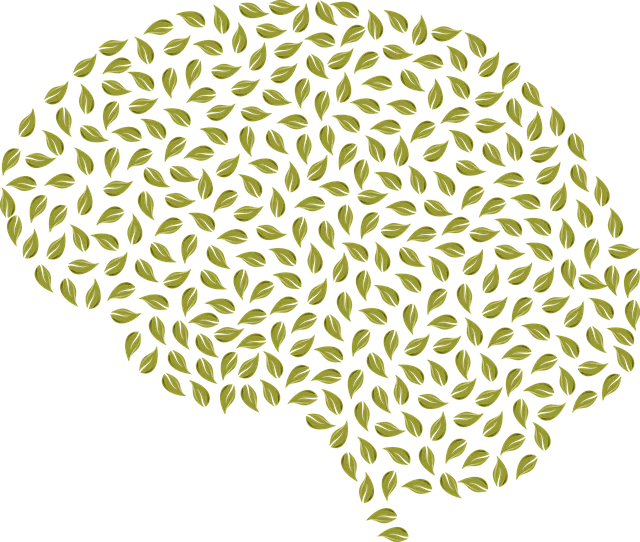Centennial Kaiser Permanente's holistic approach to Centennial Kaiser Permanente mental health services leverages diverse data sources and advanced analytics to gain profound insights into individuals' psychological well-being. By tracking symptoms, treatment outcomes, and demographics, they identify trends guiding evidence-based care planning. This enables the development of tailored programs like depression prevention, empathy-building strategies for patient-provider connections, and innovative Mental Wellness Coaching Initiatives. Through this comprehensive method, Centennial Kaiser Permanente ensures data-driven mental health policy, personalized interventions, improved patient outcomes, and enhanced overall well-being across diverse communities.
Mental health data analysis is a powerful tool for understanding and improving patient care. This article delves into the critical components of this process, offering a comprehensive overview of how organizations like Centennial Kaiser Permanente leverage their vast mental health service data for research and clinical applications. From data collection to interpretation, we explore techniques that enhance our understanding of mental health trends and inform evidence-based practice, ultimately improving patient outcomes.
- Understanding Mental Health Data: A Comprehensive Overview
- The Role of Centennial Kaiser Permanente in Mental Health Research
- Techniques for Effective Data Analysis and Interpretation
- Implications and Applications of Mental Health Insights in Clinical Practice
Understanding Mental Health Data: A Comprehensive Overview

Understanding Mental Health Data involves a deep dive into various sources and formats, from electronic health records to self-reported surveys. At Centennial Kaiser Permanente mental health services, this process begins with collecting data that paints a comprehensive picture of individuals’ psychological well-being. This includes tracking symptoms, treatment outcomes, and demographic information, providing insights crucial for effective care planning.
By leveraging data, healthcare professionals can identify trends, patterns, and risk factors associated with mental health issues like anxiety relief, depression, or even substance use disorders. The analysis empowers the design of tailored Mental Health Education Programs and the development of innovative Mental Wellness Coaching Programs. This strategic approach ensures that services are evidence-based, patient-centered, and ultimately enhance overall mental wellness.
The Role of Centennial Kaiser Permanente in Mental Health Research

Centennial Kaiser Permanente stands as a beacon of innovation in mental health research and services. With its vast data repository and commitment to patient welfare, it plays a pivotal role in advancing our understanding of mental health issues and developing effective interventions. The organization leverages cutting-edge analytics to analyze trends and patterns within its extensive patient population, providing insights that guide the creation of tailored programs and strategies for Depression Prevention, one of the primary concerns in modern healthcare.
Through meticulous data interpretation, Centennial Kaiser Permanente researchers can identify risk factors and develop proactive solutions. For instance, their work has delved into the effectiveness of Conflict Resolution Techniques as a means to mitigate stress and anxiety, thereby promoting mental well-being. Additionally, they explore Empathy Building Strategies within healthcare settings to foster stronger patient-provider connections and improve treatment outcomes. This holistic approach ensures that both the mind and spirit are nurtured in the pursuit of optimal mental health.
Techniques for Effective Data Analysis and Interpretation

The effectiveness of mental health data analysis lies in employing robust techniques that go beyond mere numbers. At Centennial Kaiser Permanente, services prioritize a holistic approach, integrating quantitative and qualitative methods to gain profound insights into mental health trends and individual experiences. This involves exploring not just the prevalence of conditions like depression prevention, but also delving into the social and cultural factors influencing emotional regulation among diverse populations.
By combining advanced statistical analysis with in-depth interviews and focus groups, researchers can uncover intricate patterns and correlations. Such an approach enriches mental health policy analysis and advocacy, guiding evidence-based interventions tailored to specific needs. This comprehensive strategy ensures that data interpretation is not merely descriptive but proactively contributes to shaping effective mental health initiatives, ultimately enhancing the well-being of communities served by Centennial Kaiser Permanente.
Implications and Applications of Mental Health Insights in Clinical Practice

The insights gleaned from mental health data analysis have profound implications for clinical practice at institutions like Centennial Kaiser Permanente mental health services. By understanding trends and patterns within patient populations, healthcare providers can tailor interventions to specific needs, improving outcomes and enhancing patient care. For instance, data might reveal increased rates of anxiety disorders among young adults, prompting the development of targeted group therapy sessions or customized digital support tools.
Furthermore, these insights play a crucial role in shaping Mental Health Policy Analysis and Advocacy efforts. By identifying gaps in services or disparities in access to care, data can inform policy changes that promote equitable mental health care. Empathy Building Strategies can also be refined based on data, ensuring healthcare professionals are equipped with the necessary tools to connect effectively with diverse patient populations. Additionally, risk assessment strategies for Mental Health Professionals can be enhanced through data analysis, mitigating potential burnout or secondary traumatic stress by providing targeted support and resources.
Mental health data analysis is a powerful tool that, when applied effectively, can significantly enhance our understanding of various mental health conditions. As demonstrated by the pioneering work of Centennial Kaiser Permanente in mental health research, leveraging large datasets allows for identifying trends and patterns that inform clinical practice. By employing sophisticated techniques discussed in this article, professionals can interpret data accurately, leading to improved patient outcomes. The insights gained from such analysis have profound implications, enabling more personalized treatment plans and ultimately improving the quality of care provided by Centennial Kaiser Permanente mental health services and beyond.






